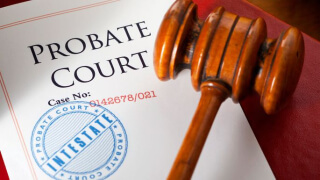
The state makes the decisions on where your assets should go.
If it is determined that if you do not leave a will or an estate plan, then probate takes over with a key focus on debts and what gets paid first, according to The Balance in “Dealing with Debts and Mortgages in Probate.” It would most likely be a better process for your heirs, if you have an estate plan.
Probate is the process of gaining court approval of the estate and paying off final bills and expenses, before property can be transferred to beneficiaries. Dealing with the debts of a deceased person can be started, before probate officially begins.
Start by making a list of all of the decedent’s liabilities and look for the following bills or statements:
- Mortgages
- Reverse mortgages
- Home equity loans
- Lines of credit
- Condo fees
- Property taxes
- Federal and state income taxes
- Car and boat loans
- Personal loans
- Loans against life insurance policies
- Loans against retirement accounts
- Credit card bills
- Utility bills
- Cell phone bills
Next, divide those items into two categories: those that will be ongoing during probate—consider them administrative expenses—and those that can be paid off after the probate estate is opened. These are considered “final bills.” Administrative bills include things like mortgages, condo fees, property taxes and utility bills. They must be kept current. Final bills include income taxes, personal loans, credit card bills, cell phone bills and loans against retirement accounts and/or life insurance policies.
The executor deals with all of these liabilities in the process of settling the estate.
For some of the liabilities, heirs may have a decision to make about whether to keep the assets with loans. If the beneficiary wants to keep the house or a car they have to keep paying down the debt.
The executor decides what bills to pay and which assets should be liquidated to pay final bills.
An estate planning attorney can advise you on creating an estate plan that fits your unique circumstances.
Reference: The Balance (March 21, 2019) “Dealing with Debts and Mortgages in Probate”